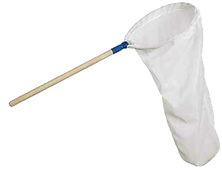Meeting April 19th: Cicada biology, hybridization, and diversification: insights from New Zealand
We are coming to the close of our program of presentations. As per tradition, our April meeting (Friday, April 19, starting at ~6 p.m.) will be held in the Jones Auditorium of the Connecticut Agricultural Experiment Station, 123 Huntington St., New Haven. We feature our Annual Meeting, in which we choose officers for next year, have a silent auction of entomological goods, and have a pot luck supper. Bring your favorite dish to share! For those unable to attend in person, we will provide a Zoom link for attendance. Please email ctentsoc@gmail.com for the link.
Our grand finale will be a presentation by our webmeister himself, Mark Stukel!
Title: Cicada biology, hybridization, and diversification: insights from New Zealand
Abstract: Cicadas are a diverse group of insects that serve as an interesting system for answering questions in evolutionary biology. Thanks to their long underground life cycles and species-specific mating songs, they can be used for studying patterns of species distribution and the evolution of reproductive isolation. In this talk, I will introduce the ways cicadas are useful for answering these questions, as well as some results from my research I conducted in New Zealand on New Zealand cicada hybridization and world-wide cicada phylogeny and divergence times.
Bio: Mark Stukel is a Ph.D. Candidate in the Simon lab at the University of Connecticut Department of Ecology and Evolutionary Biology, as well as the Webmaster for the Connecticut Entomological Society. He received his B.S. in Biology from Hope College in 2016 before starting at UConn in 2018. His research interests are in the processes that drive the formation and spread of earth's biodiversity using insects as a study system, with special interest in hybridization between species, historical biogeography, and methods to infer species relationships using genome-scale datasets. In 2023 he received a Fulbright Fellowship to conduct research on cicadas at the University of Auckland in New Zealand.














Comments